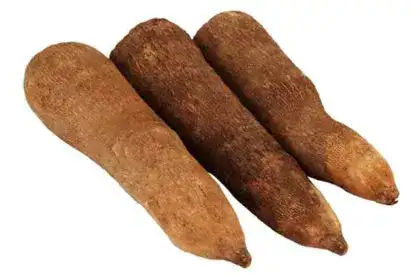Pigeon pea is another famous name for toor dal that is a well-known word all over the world. Its botanicaI name is Cajanus cajan. Toor dal is the lentil of the Faboideae subfamily and the Fabaceae family.
The old world is the native of this perennial legume, produced in both the semitropical and tropical regions worldwide. Generally, toor dal is consumed in Latin America, the Caribbean, Africa, and Southeast Asia.
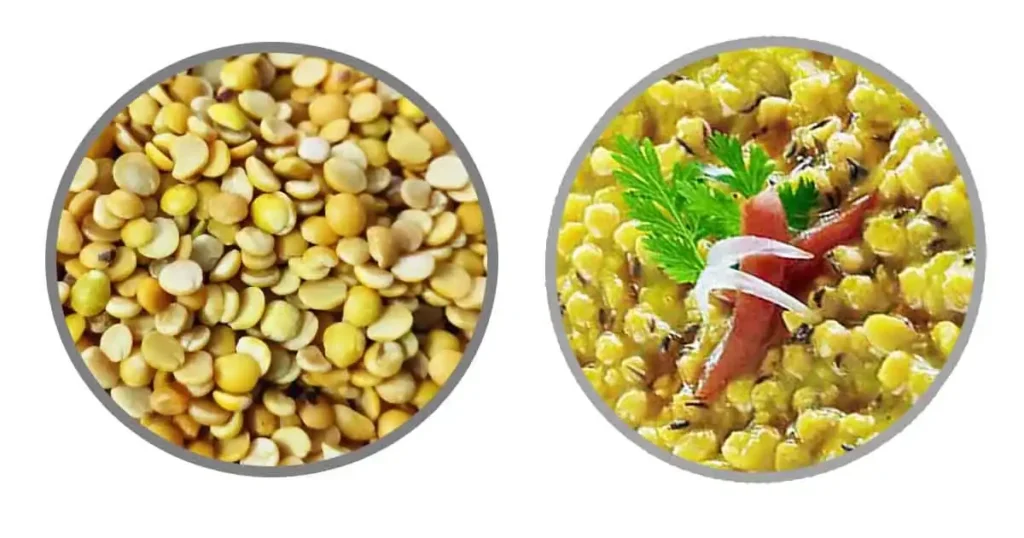
There are so many different Indian names for toor dal. Some are Kandipappu, Thuvaram Paruppu or Paruppu Kadaiyal, Thogari Bele, Arhar ki dal, Arhar dal, and Tuvara Parippu in Telugu, Tamil, Kannada, Hindi, Gujarati, and Malayalam respectively.
The below article contains all the information about Toor Dal. Like – Toor dal in Telugu, its cost, types, availability the nutritional value of Toor dal, health benefits, and many more.
| English name | Pigeon pea |
| Telugu name | Kandipappu |
| Scientific name | Cajanus cajan |
| Kingdom | Plantae |
| Genus | Cajanus |
| Family | Fabaceae |
| Subfamily | Faboideae |
| Order | Fabales |
Toor dal in Telugu name
If you read the above table carefully, you can know the name of toor dal in Telugu, which is Kandipappu. However, toor dal or pigeon pea are the most famous names if you are in a rural area or village of the Telugu-telling area (Telangana, Andhra Pradesh, Kerala, some regions of Chhattisgarh and Odisha ).
But it is possible that the local people can’t understand the english name. At those places, you have to ask them for Kandipappu. But the city people can understand the name pigeon pea, and you can get so many different toor dal dishes on the city restaurants and hotels menus.
Health benefits of toor dal
1. Toor dal consists of anti-malaria compounds
Toor dal acts as an anti-malaria agent because its leaves have chalcone which is an active compound, and they have anti-malaria benefits. The anti-malaria compound helps to cure jaundice. The only consumption of toor dal can’t treat malaria or jaundice without medicine. You should consult with your doctor first.
2. Toor dal helps to heal wounds
This lentil helps to activate the formation of tissues and decrease the inflammation in the wounded tissues with the help of its anti-inflammatory activities. This process helps to remodel the tissues.
3. Toor dal helps to control cholesterol and diabetes
High protein is an essential component in toor dal which helps to prevent type 2 diabetes. According to many studies, those diabetic people who consume toor dal regularly can get the benefit of lowering their cholesterol and blood sugar levels.
The high fiber content and antioxidant activities of toor dal help reduce the human body’s bad cholesterol ( LDL ) level. But you must consult with your doctor and add toor dal in your diet with medication according to the doctor’s prescription.
4. Toor dal is an excellent folic acid source
Pregnant women need a good amount of folic acid for a healthy baby. Toor dal can provide them with a good amount of toor dal according to their need. The folic acid in toor dal helps prevent neural tube birth defects (for example, spina bifida ) and essential fetus development.
According to NYSDH ( the New York State Department of Health ), if you consume a sufficient amount of folic acid daily, it can help to avoid some birth defects related to the spinal cord and brain upto 70%.
5. Toor dal is a great source of protein
Toor dal is an excellent pulse or bean with a considerable amount of protein and comes under a vegetable subgroup. Toor dal is a superb legume that contains nutrients and dietary fiber. It is a fantastic blessing for those who depend on vegetables and pulses to fulfill their protein and fiber needs.
6. Toor dal contains a significant number of carbohydrates and iron
Carbohydrate is an excellent component to gain energy for the body, and toor dal contains carbohydrate in sufficient amounts. Carbohydrate-rich food can break down the carbohydrate into blood sugar or glucose.
Blood sugar is helpful to nourish the body’s nervous system and brain. Toor dal has carbohydrates in complex form. Complex carbohydrate helps to decrease chronic disease risks like heart disease and diabetes.
Iron is also a fantastic source of toor dal. Toor dal can fulfill 6% to 12% of the daily iron requirement in the human body, which is a great thing.
7. Toor dal can add a good amount of fiber to your diet
A good amount of dietary fiber can boost bowel movement regularity and save you from constipation problems. As you already know, that too dal or Kandipappu is full of dietary fibers.
A fiber-rich diet can reduce chronic disease risks. Adding toor dal to your regular diet can reduce some serious risks like stroke, heart disease, type-2 diabetes, cardiovascular diseases, and cancer.
8. Toor dal is helpful in weight loss and diabetic people
Different types of lentils should be part of the everyday diet of diabetic patients because lentils are full of complex carbohydrates. The low glycemic index of toor dal makes it ideal for diabetic people. Foods with low GI (glycemic index) don’t increase the sugar level and take more time to break down.
The protein and fiber content in toor dal helps keep your stomach full for a long time and avoid your overeating habit and unhealthy snaking, and your hunger will be controlled. It is an appropriate dal for people looking forward to losing some weight.
Trypsin and phytate enzyme contents help to digestion process and bioavailability of mineral reduction, respectively. Toor dal contains both enzymes.
Side effects of toor dal
As you know, toor dal is full of protein. So if you consume it in excessive quantity, it may disturb your stomach and, most minor, to indigestion. So first consult with a good dietician before adding it to your diet. Wash it properly, then cook.
Pregnant ladies should intake it or avoid it according to the advice of their respective doctors.
Some photo of Toor dal
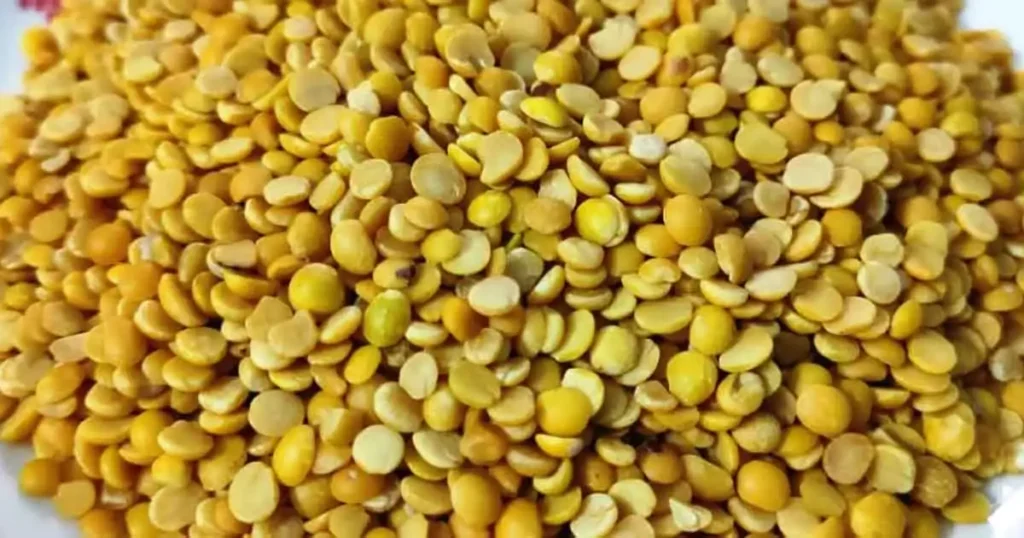
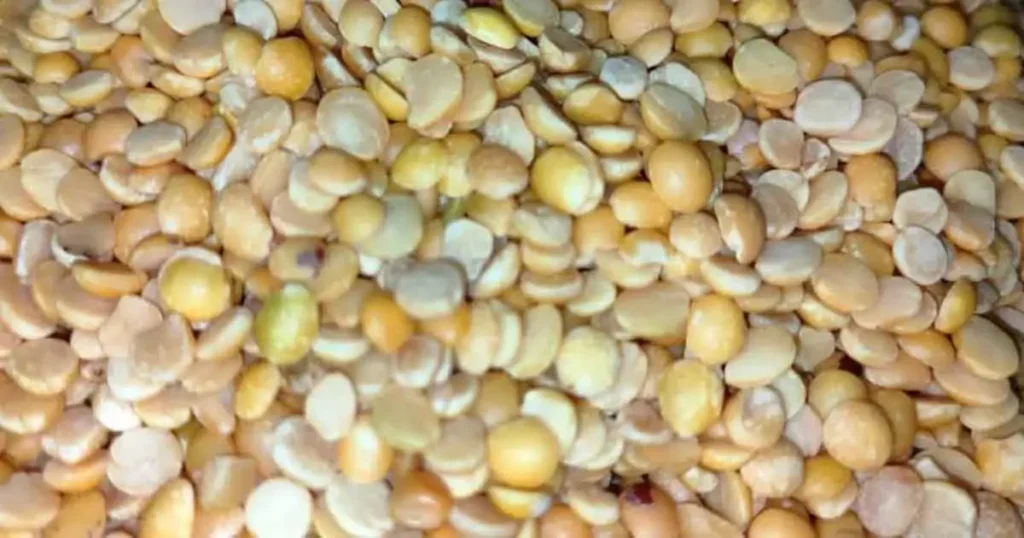
Nutritional value of toor dal
The nutrition content you can get from 100 grams of toor dal ( raw and immature ) is –
| Nutrients | Quantity | % daily value |
|---|---|---|
| Energy or calories | 150 kcal | – |
| Sugar | 2.86 grams | – |
| Protein | 10.50 grams | – |
| Dietary fiber | 5.5 grams | – |
| Iron | 2.09 mg | 4% |
| Sodium | 86 mg | 0% |
| Carbohydrate | 25.86 grams | – |
| Calcium | 57 mg | 4% |
| Fat | 1.43 grams | 2% |
| Saturated fat | 0.3 gram | 1% |
| Total dietary, fiber | 17.1 grams | 60% |
| Potassium | 1.325 mg | 39% |
| Calcium | 45 mg | 4% |
| Iron | 2 mg | 12% |
| Magnesium | 90 mg | 19% |
| Zinc | 1.06 mg | 11% |
| Manganese | 1.2 mg | 28% |
| Vitamins | Quantity | % of the daily value |
|---|---|---|
| Vitamin B1 ( thiamine ) | 0.4 mg | 35% |
| Vitamin B2 ( riboflavin ) | 0.17 mg | 35% |
| Vitamin B3 ( niacin ) | 2.2 mg | 15% |
| Vitamin B5 (pantothenic acid) | 0.67 mg | 14% |
| Vitamin B9 ( folate ) | 175 microgram | 43% |
| Vitamin B6 | 0.067 mg | 5% |
| Vitamin C | 38 mg | 2% |
| Vitamin E | 0.7 mg | 46% |
| Vitamin K | 25 microgram | 23% |
| Choline | 45 mg | 8% |
100 grams of Raw and mature toor dal provides –
| Nutrients | Quantity | % daily value |
|---|---|---|
| Energy or calories | 343 kcal | – |
| Sugar | 2.86 grams | – |
| Protein | 22.86 grams | 44% |
| Sodium | 20 mg | 1% |
| Carbohydrate | 62.86 grams | 21% |
| Fat | 1.43 grams | 2% |
| Saturated fat | 0.3 gram | 1% |
| Total dietary, fiber | 17.1 grams | 60% |
| Potassium | 1.392 mg | 39% |
| Calcium | 130 mg | 13% |
| Iron | 5.23 mg | 40% |
| Magnesium | 185 mg | 52% |
| Phosphorus | 365 mg | 52% |
Toor dal is one of the staple food in India among the vegetarian people. It is a vital fiber, nutrient, carbs, and protein source. Toor dal is a blessing for those people who want to lose weight due to its low-calorie content. It helps in the human body’s growth and development.
Folic acid, iron, and calcium are the main content of toor dal, which help to avert congenital birth, cure defects in the fetus, and boost the growth of the fetus. Pigeon pea is rich in Vitamins and minerals like phosphorus, magnesium, potassium, sodium, zinc, and manganese.
Cost of Toor dal in in Telugu areas
In India, the cost range of toor dal falls between Rs 90 to Rs 190 per kg. The cost depends upon quality, the buying place, and the brand or local store. Rs 80 to Rs110 per kg is the average toor dal price in Andhra Pradesh. Rs 12600 is the approximate cost of one quintal toor dal in Kerala as of 10/05/2023.
You can buy 1 kg of toor dal by spending around Rs 120 in Telangana, which is very affordable. Its high protein, fiber, mineral, and vitamin content make it a cost-worthy pulse. In Odisha, the cost of approximately 1 kg toor dal is around Rs 70 to Rs 85. You can als buy it from online stores to get some more discounts.
Availability and popularity of Toor dal in Telugu areas ( Telangana, Andhra Pradesh, Kerala, some regions of Chhattisgarh and Odisha, etc. )
Karnataka and Madhya Pardesh are the top toor dal producer states in India. They produce the highest amount of toor dal and supply it to the other states to fulfil the pulse need. The state Karnataka is called as the land of toor dal.
The love for toor dal among the people of Telangana, Andhra Pradesh, Kerala, and some regions of Chhattisgarh and Odisha is very high. South Indian people prepare sambar from toor dal with a Tadka, which is counted as a delicacy among South Indian people. The regions behind the popularity of toor dal are its nutritional, protein, fiber, vitamin, and mineral content.
Popular Recipes of Toor dal in Telugu areas
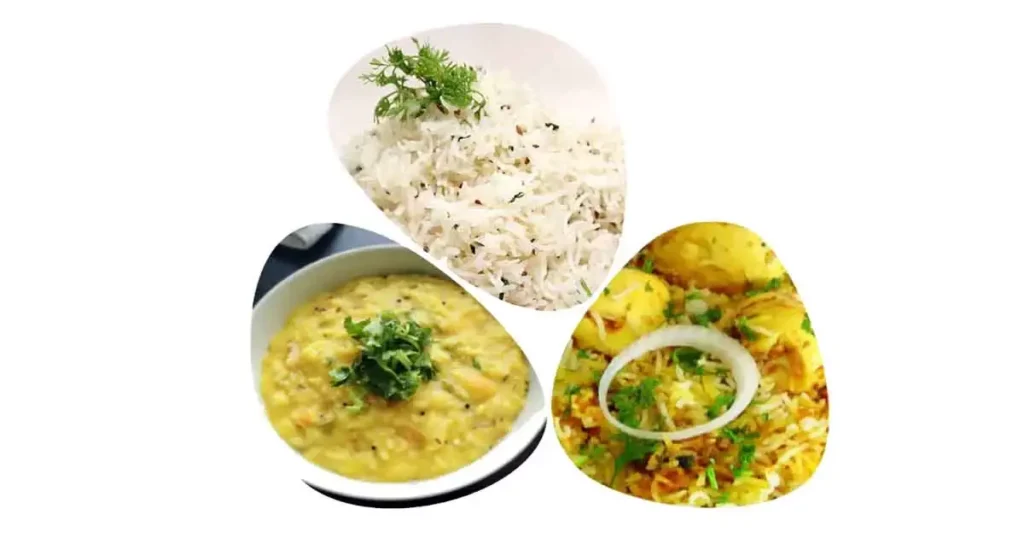
Paruppu Kadaiyal with south indian tadka, South Indian Paruppu Kadaiyal, toor dal with spinach, dal rasam, and toor dal fry, etc., are some popular South Indian recipes. Toor dal masala vada, toor dal with tamarind and jaggary, and Dhaba style toor dal Tadka are some very famous Indian recipes.
You can prepare idli, desserts, and dosa by using toor dal. Indian restaurants have so many toor dal recipes which are very delicious and rich in protein and fiber.
Final verdict
Protein is a primary component of the human body in toor dal. It helps to repair tissues and enhance strength and mass. This nutritious lentil helps the development of physical and mental strength. The pulse is recommended for all age group people (child-adult – old, pregnant women, sick people ). But you have to keep an eye on its proper quantity and wash it properly before cooking.
You can get all kinds of information from the above article about tor dal. Like – toor dal in Telugu, its cost, nutritional value, health benefits of toor dal, popularity, availability, and many more.
Questions and answers
1. Discuss about some health benefits of toor dal?
Toor dal provides a vast range of health benefits. Some of them are –
1. Toor dal consists of anti-malaria compounds
2. Toor dal helps to heal wounds
3. Toor dal helps to control cholesterol and diabetes
4. Toor dal is an excellent folic acid source
5. Protein is a vital content of toor dal
6. Toor dal contains a significant number of carbohydrates and iron
7. Toor dal can add a good amount of fiber to your diet
8. Toor dal is helpful in weight loss and diabetic people
2. Describe some side effects of toor dal?
No critical side effects of toor dal are recorded in medical history. But consuming it in an inappropriate manner can put you in some problems. Some of them are –
1. Stomach bloating
2. Allergies related to gastrointestinal ( gastrointestinal tract infections )
3. Respiratory illness and Skin allergies like a hive or scratching
If you see any problems mentioned above, you should consult with a reputable doctor immediately and start treatment. Othe
3. How does toor dal help in weight loss?
The protein and fiber content present in toor dal helps to keep your stomach full for a long time and avoid your overeating habit and unhealthy snaking, and your hunger will be controlled. It is an appropriate dal for people looking forward to losing some weight.
4. What are the different Indian names of toor dal?
There are so many regional names of tor dal that are popular in India. Some of them are –
| Language name | Name of toor dal |
|---|---|
| Hindi | Arahar, Tuvar |
| Assamese | Arahar |
| Bengali | Arahar, Mirai-maha |
| Gujarati | Tuver |
| Kannada | Togari bele, Togari Kalu |
| Konkani | Tori |
| Malayalam | Adhaki |
| Odia | Harada dali |
| Telugu | Adhaki, Kandi, Togari, Tuvaramu |

